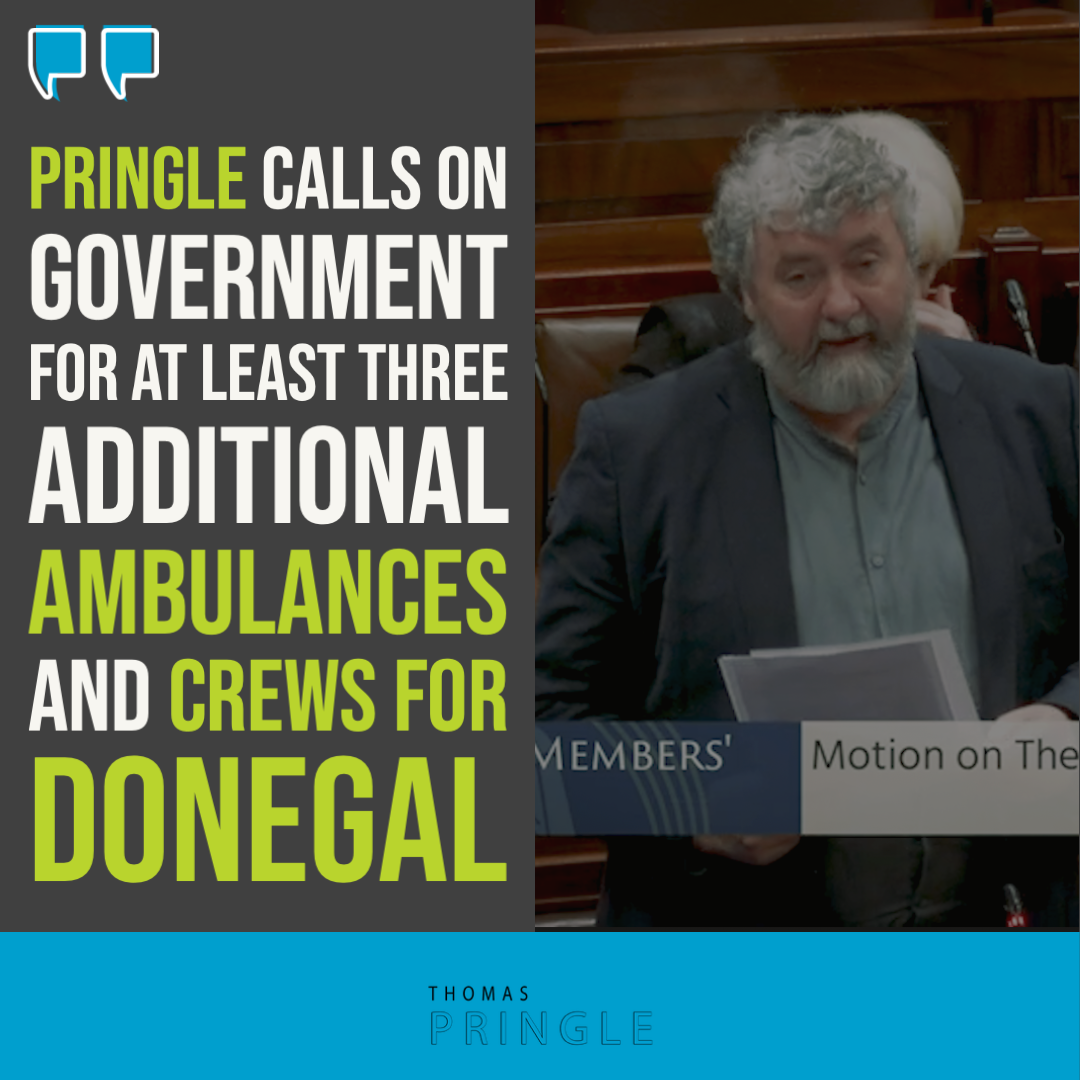- Pringle: We need a policy that recognises the importance of inshore fishing
- Pringle: Disabled people and carers face crisis of State neglect
- Pringle: Failed FF/FG housing policies forcing people to put their lives on hold
- Pringle welcomes Donegal council motion on Occupied Territories Bill: ‘We cannot stand by in the face of genocide’
Pringle calls on Government for at least three additional ambulances and crews for Donegal
- Updated: 1st March 2023

Independent TD for Donegal, Thomas Pringle, has called on Government to provide at least three additional ambulances and crews to Donegal.
Addressing the Dáil on Tuesday evening, Deputy Pringle said: “Like every other part of our health services, now the ambulance service is in crisis.
“I wonder at this stage is it deliberate on behalf of the government, is it preparation for privatisation that we are seeing the inaction across the board? It is rule 101 in the privatisation book that you run down services so much that citizens will accept anything as a solution and surely the private operators will do better – except they don’t, and ultimately what they do is more expensive as well.
“Some people have said that it is simply that the government are trying to live within totally unrealistic budgetary constraints that is the problem. I can’t figure out which is worse at the moment,” he said.
The deputy was speaking in support of the Sinn Féin motion re The National Ambulance Service.
Deputy Pringle said: “It is shocking when you see the workforce plan outlines that the service needs 1,300 more paramedics to meet demand by the end of 2024.
“In Donegal I believe that we need three extra ambulances and crews to meet the needs that we have. Killybegs station definitely needs another crew on duty, a call out to Glencolmcille can barely meet the call-out requirements when there is a crew based in Killybegs, never mind if that crew is covering Donegal Town and based there, which often happens. And there is a need for an extra crew in Inishowen and an extra crew in either Letterkenny or Ballybofey as well.
“The queuing of ambulances at Letterkenny University Hospital is continuing but now the ambulance service has employed a person to try and move them on. The reality is that the hospital is unable to take patients quickly enough and that is what is impacting on the delays of ambulances at the hospital. Spending the cost of another officer won’t solve the situation as far as I can see,” he said.
Deputy Pringle said: “There is one good development that has come over the last few years and it is the community paramedic, which diverts patients from casualty and enables many patients to remain at home by giving a higher level of care in the community. This needs to be rolled out on a service-wide basis and it would actually save money overall for the health services.
“A patient that can be treated without going to casualty is the cheapest patient in the health service. You would think that the bean-counters in the HSE and the Department of Health would at least see that,” he said.
The deputy said the Government response to the motion appears to recognise some of that, “but looking at the gobbledygook it is hard to see. Maybe that is part of the problem; they speak in tongues and no one understands what the intention is.”



